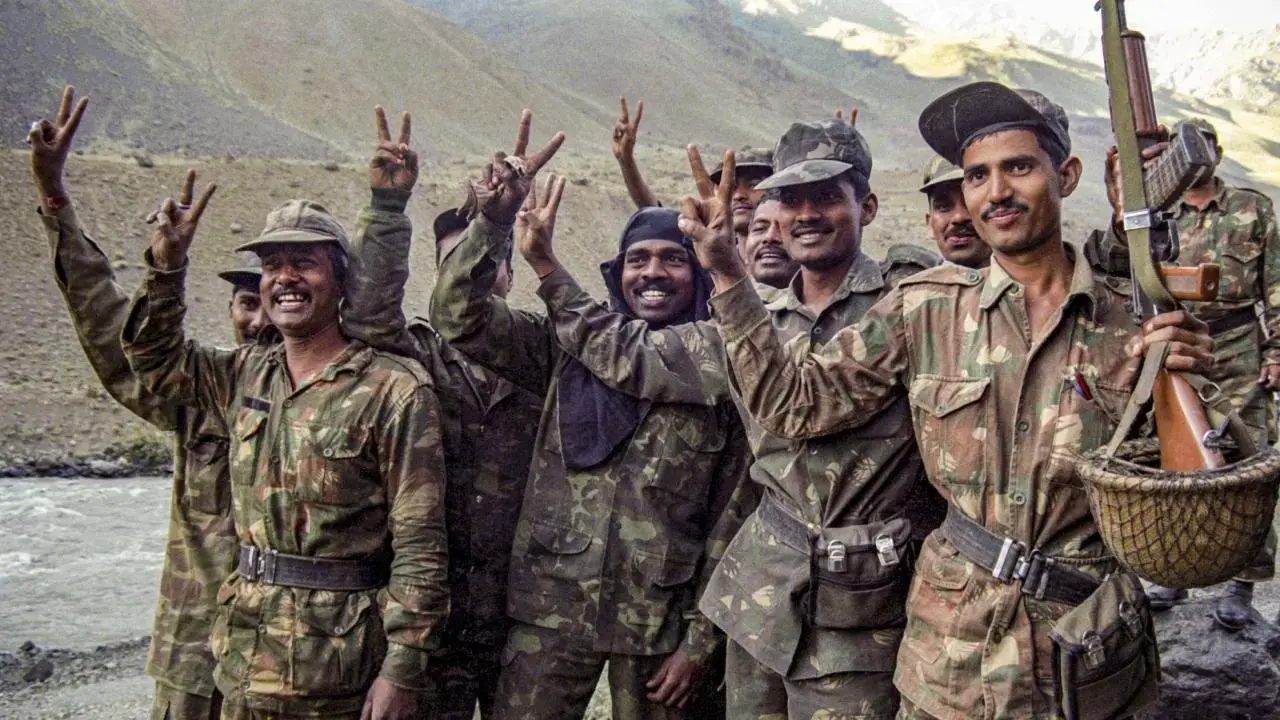July 26 this year marks the 25th anniversary of the Kargil War, one of the major wars to take place on the India-Pakistan border

Indian army soldiers during the Kargil War in July 1999. File Pic/PTI
July 26 this year marks the 25th anniversary of the Kargil War, one of the major wars to take place on the India-Pakistan border. The Kargil War of 1999 marked a significant moment in India’s history, and the media played a crucial role during this conflict. It was the first ‘live’ war in the South Asian region to unfold on television screens across the nation, thanks to the then newly introduced electronic media.
ADVERTISEMENT
The media is described as a window to the world because whenever a critical situation arises, the whole nation looks up to the media to know what is happening. This role becomes even more prominent during crises and wars.
The war was fought in the Kargil district of Jammu and Kashmir and elsewhere along the Line of Control (LoC). In India, the conflict is also referred to as Operation Vijay, which was the codename of the Indian military operation in the region.
The Indian Air Force acted jointly with the Indian Army to flush out the Pakistan Army and paramilitary troops from vacated Indian positions along the LoC in what was designated as Operation Safed Sagar.
Here’s how the media impacted the course of the war:
Awareness and nationalistic fervor:
Indian media created awareness among the public about the Kargil War through impactful visuals. They highlighted the hardships faced by the Indian Army, arousing nationalistic fervor. The positive image projected by the media also helped India gain overwhelming diplomatic recognition.
War news:
As the war progressed, media coverage became irregular. While some media houses provided facts, figures, and official statements, others turned the war into an entertaining serial.
Media access and reporting:
Initially, the press had access to forward areas without hindrance from the armed forces or bureaucracy. This allowed them to report from the battlefront. However, graphic details of bloody encounters were not shown, maintaining a balance between informing the public and respecting sensitivities.
Transporting footage:
During that time, media outlets relied on primitive methods to transport shooting tapes. Clips were carried from Srinagar to Delhi by visiting VIPs and army convoys.
 Subscribe today by clicking the link and stay updated with the latest news!" Click here!
Subscribe today by clicking the link and stay updated with the latest news!" Click here!







